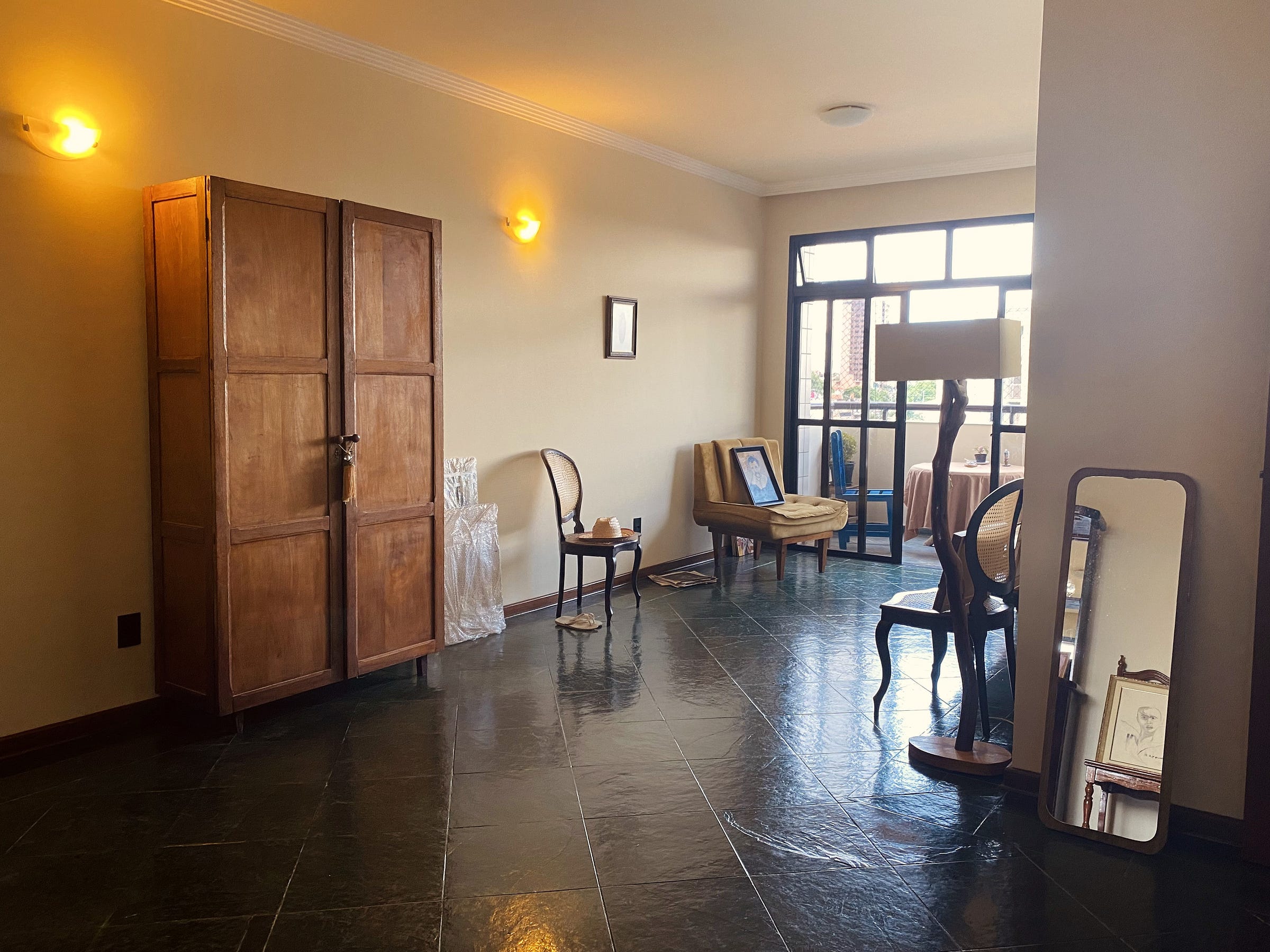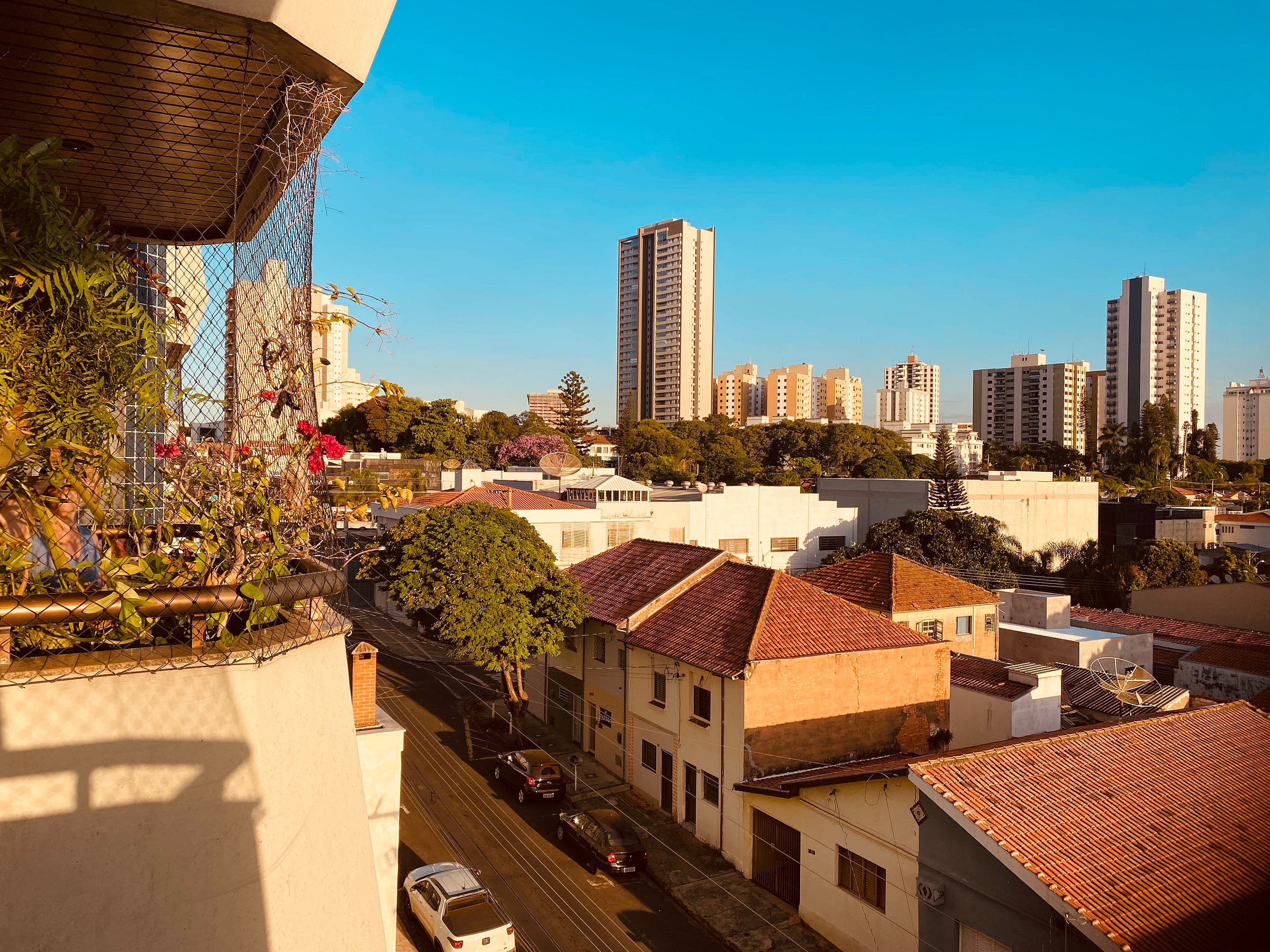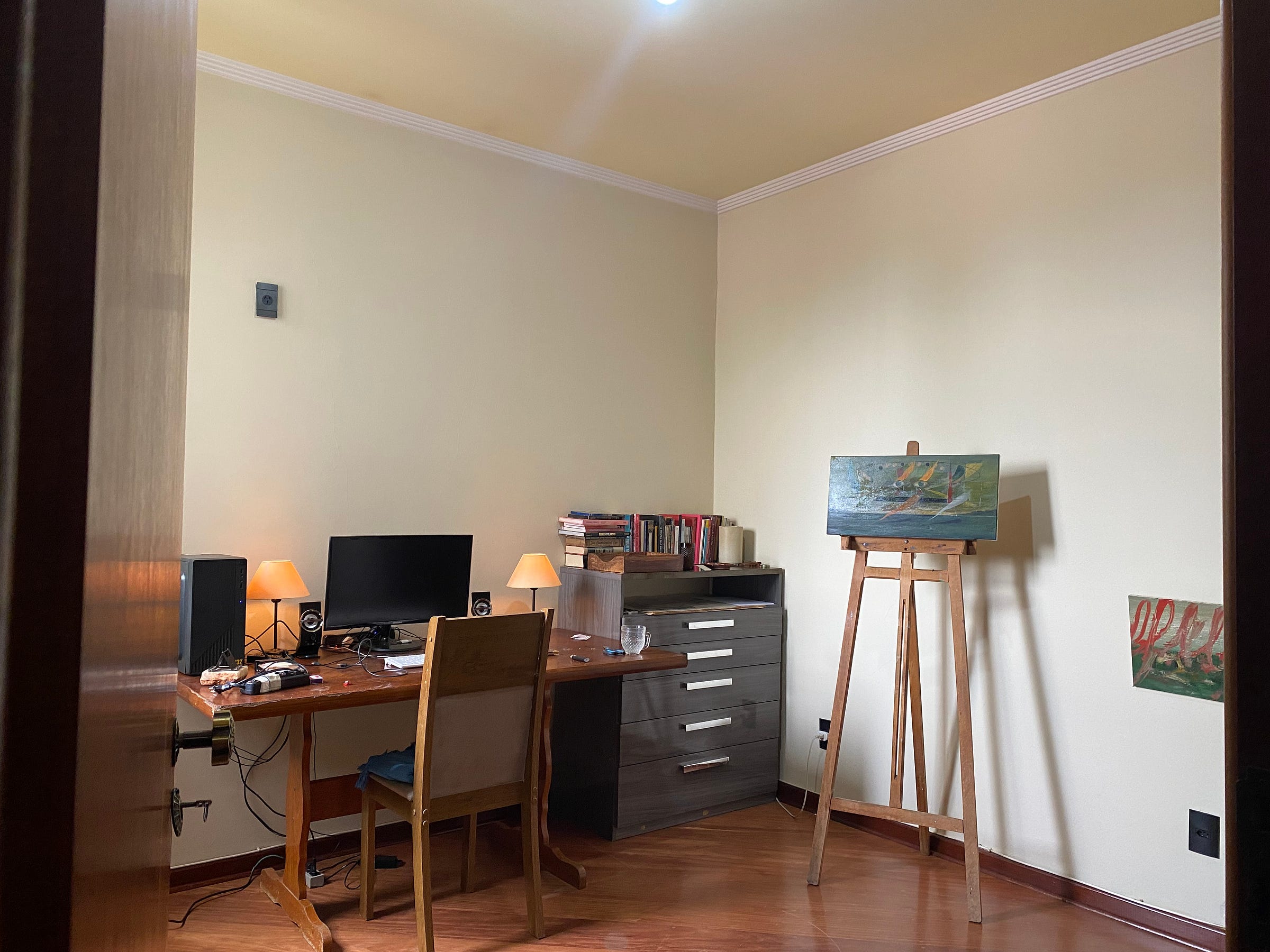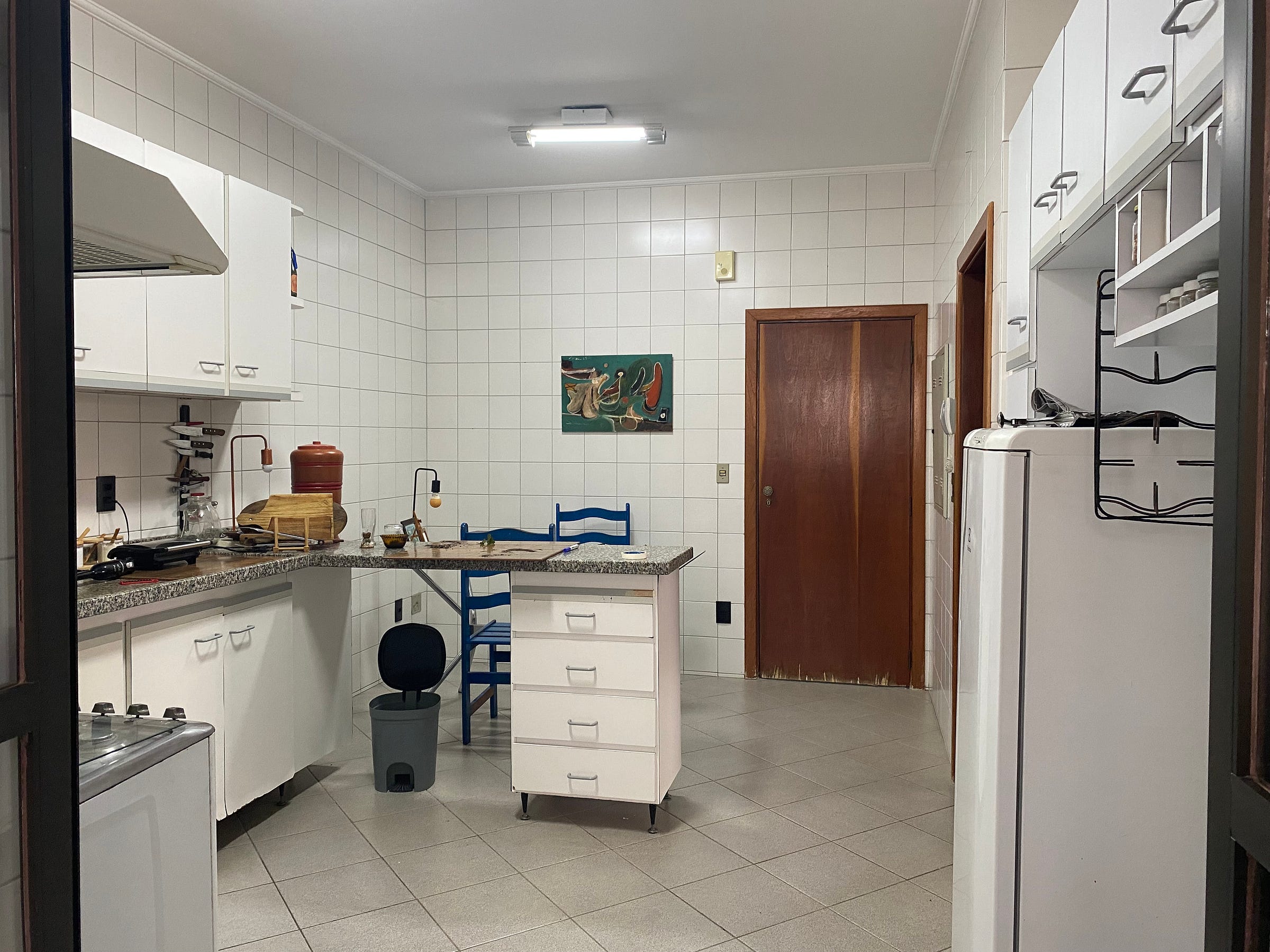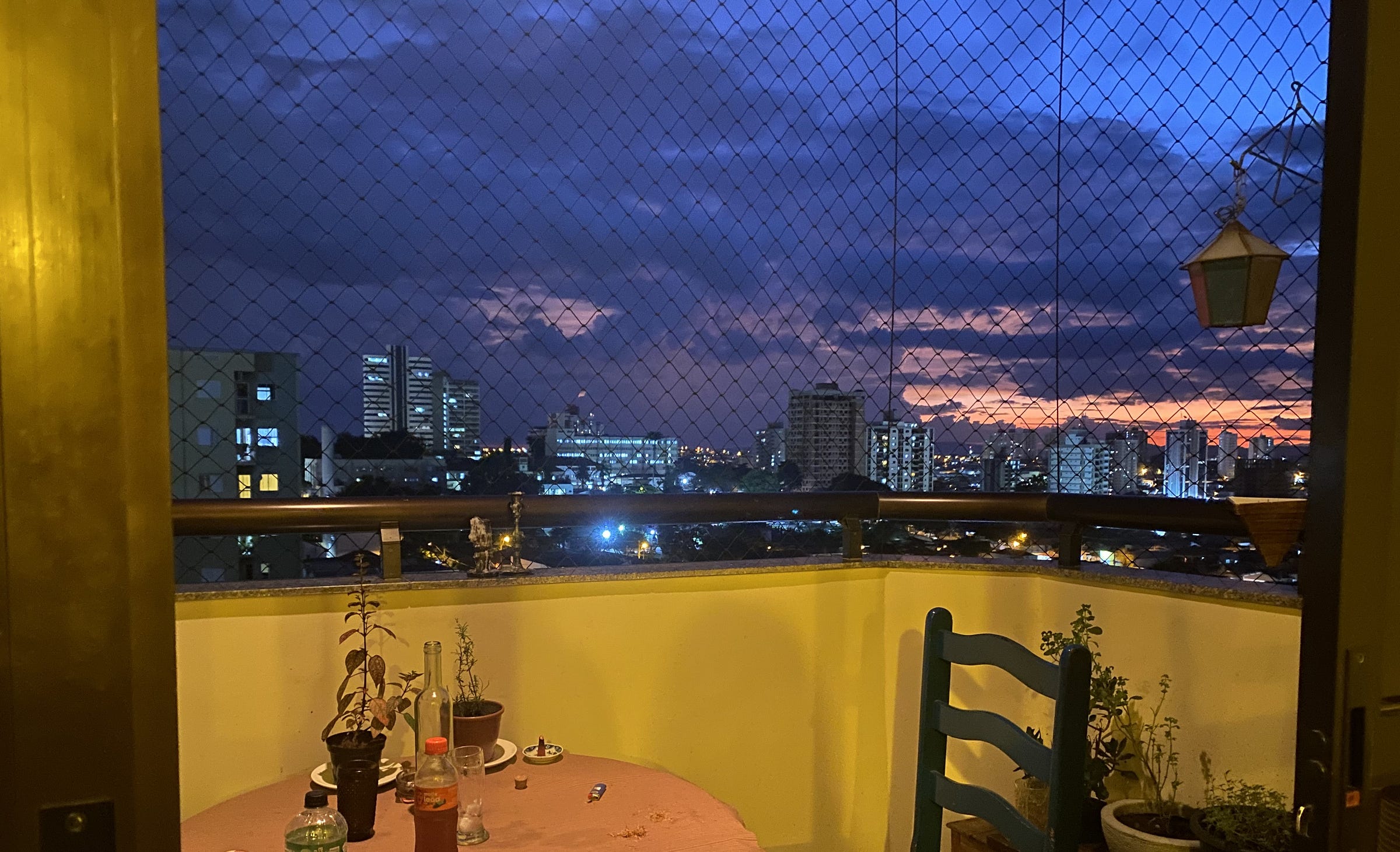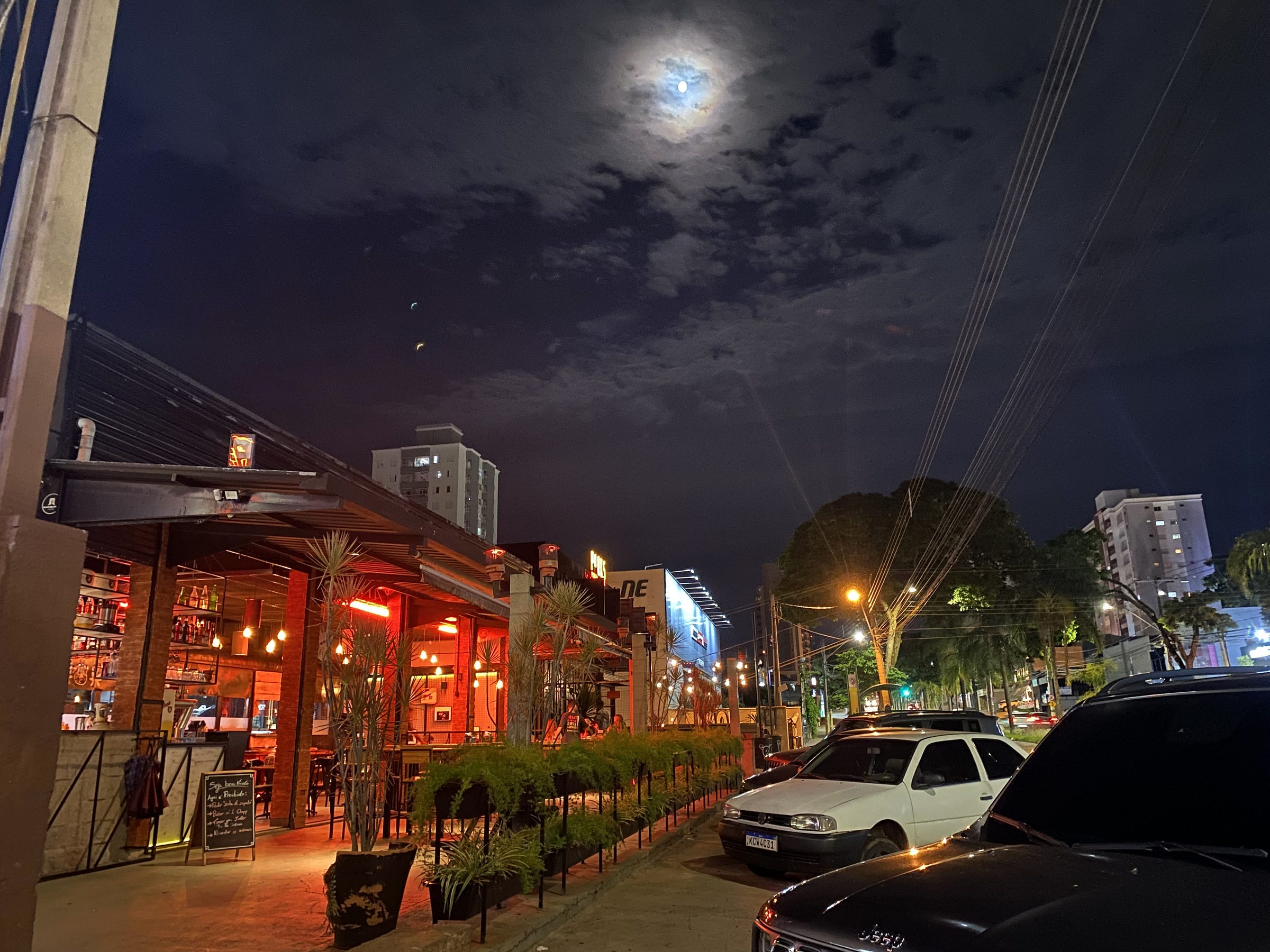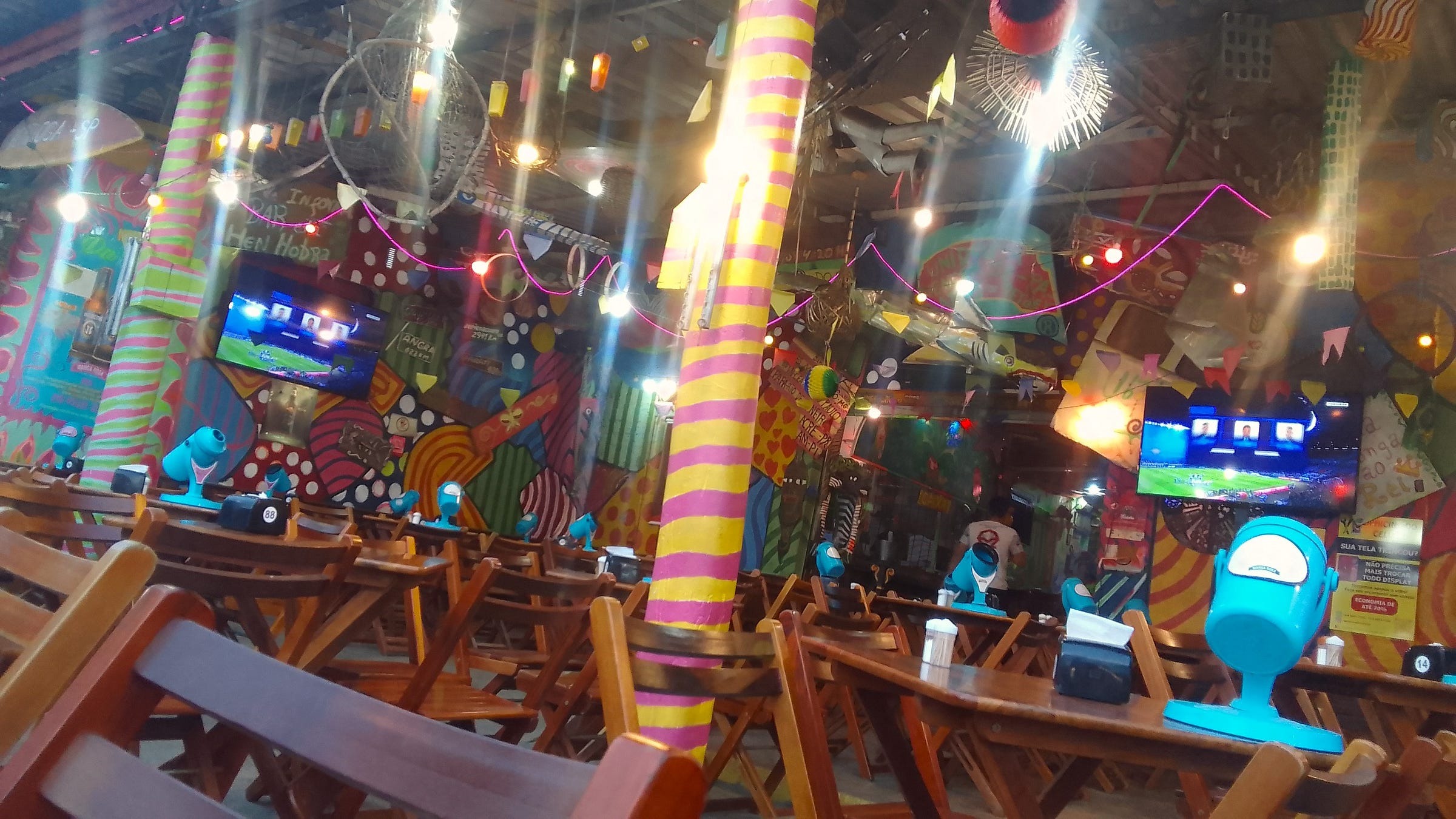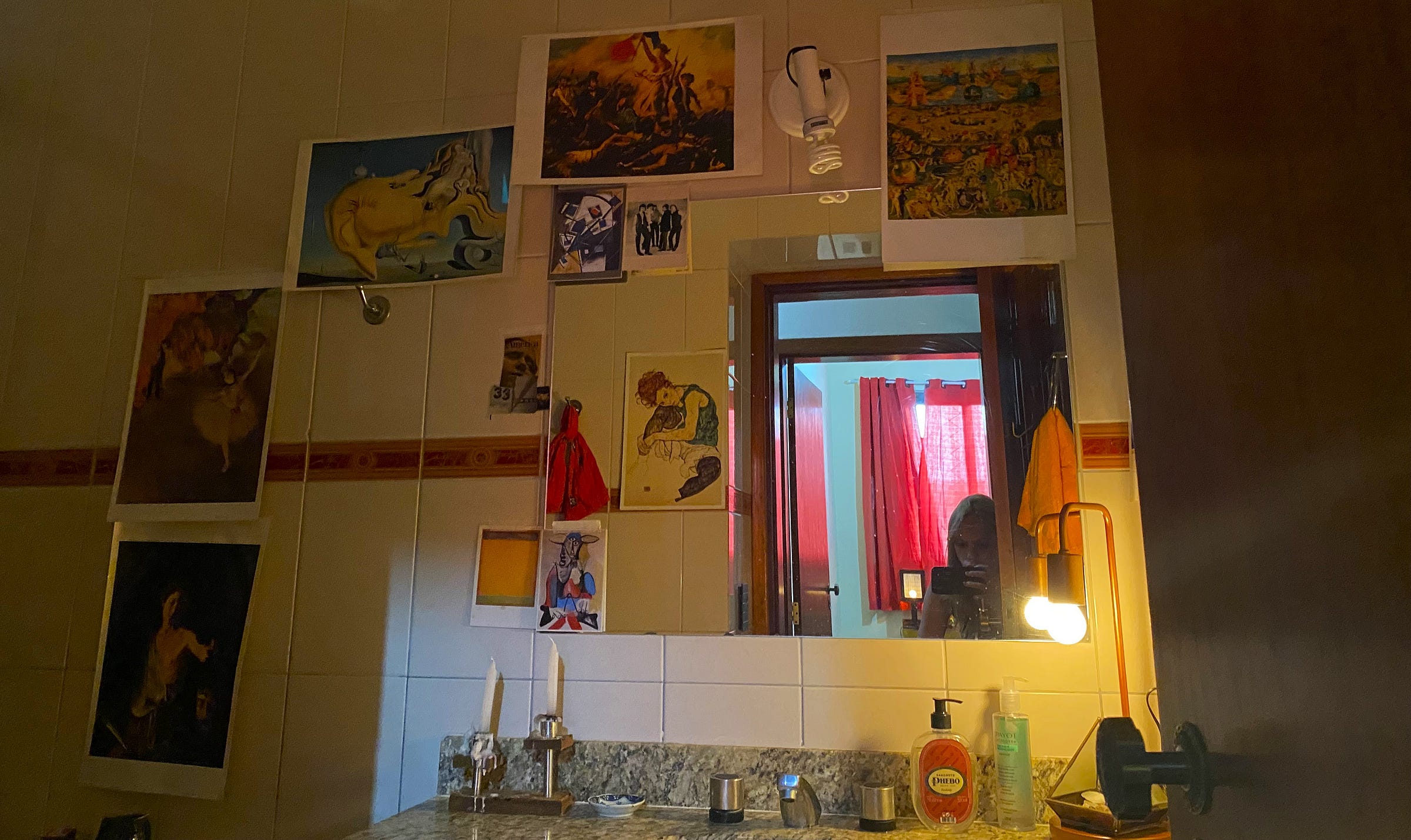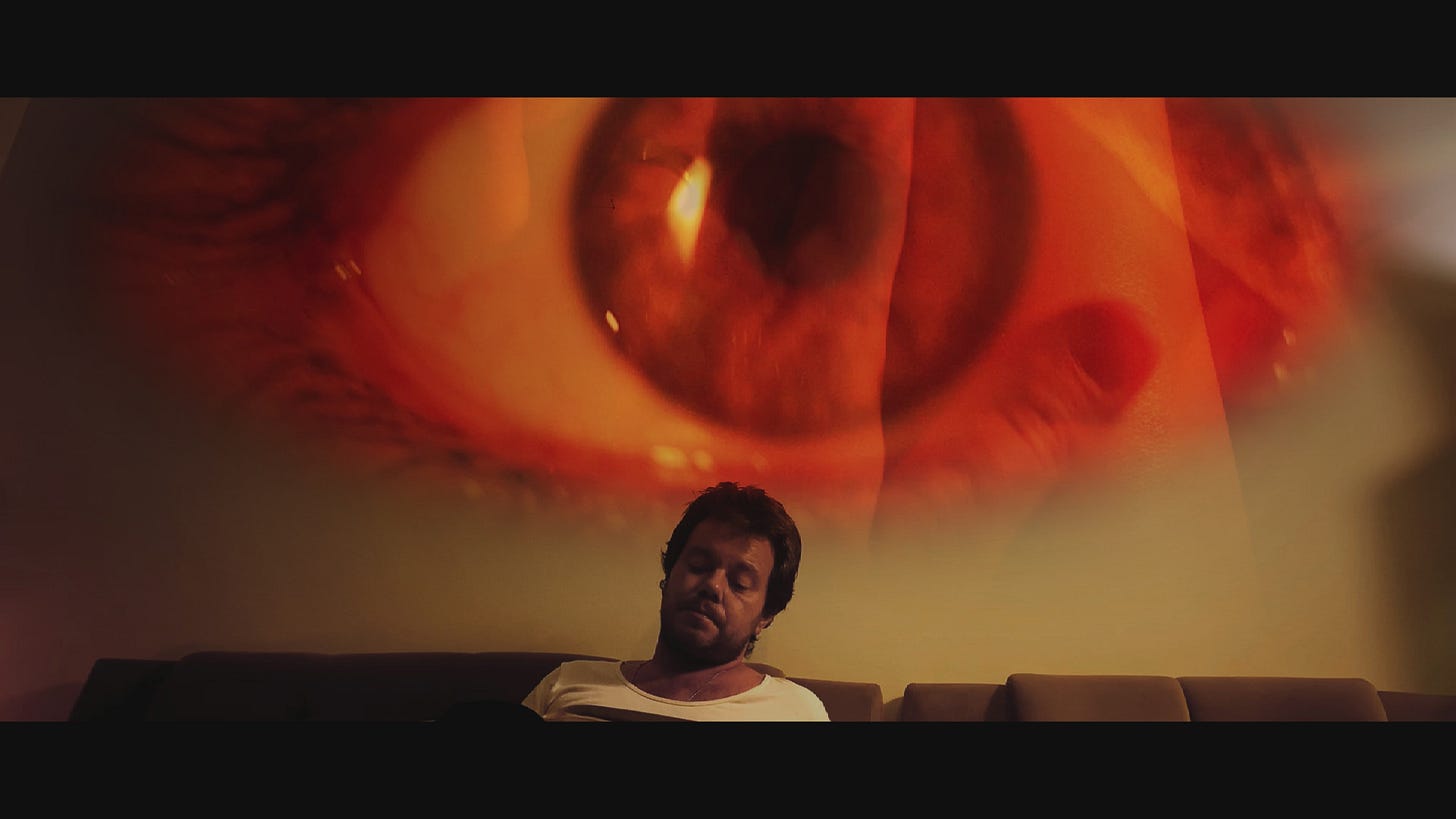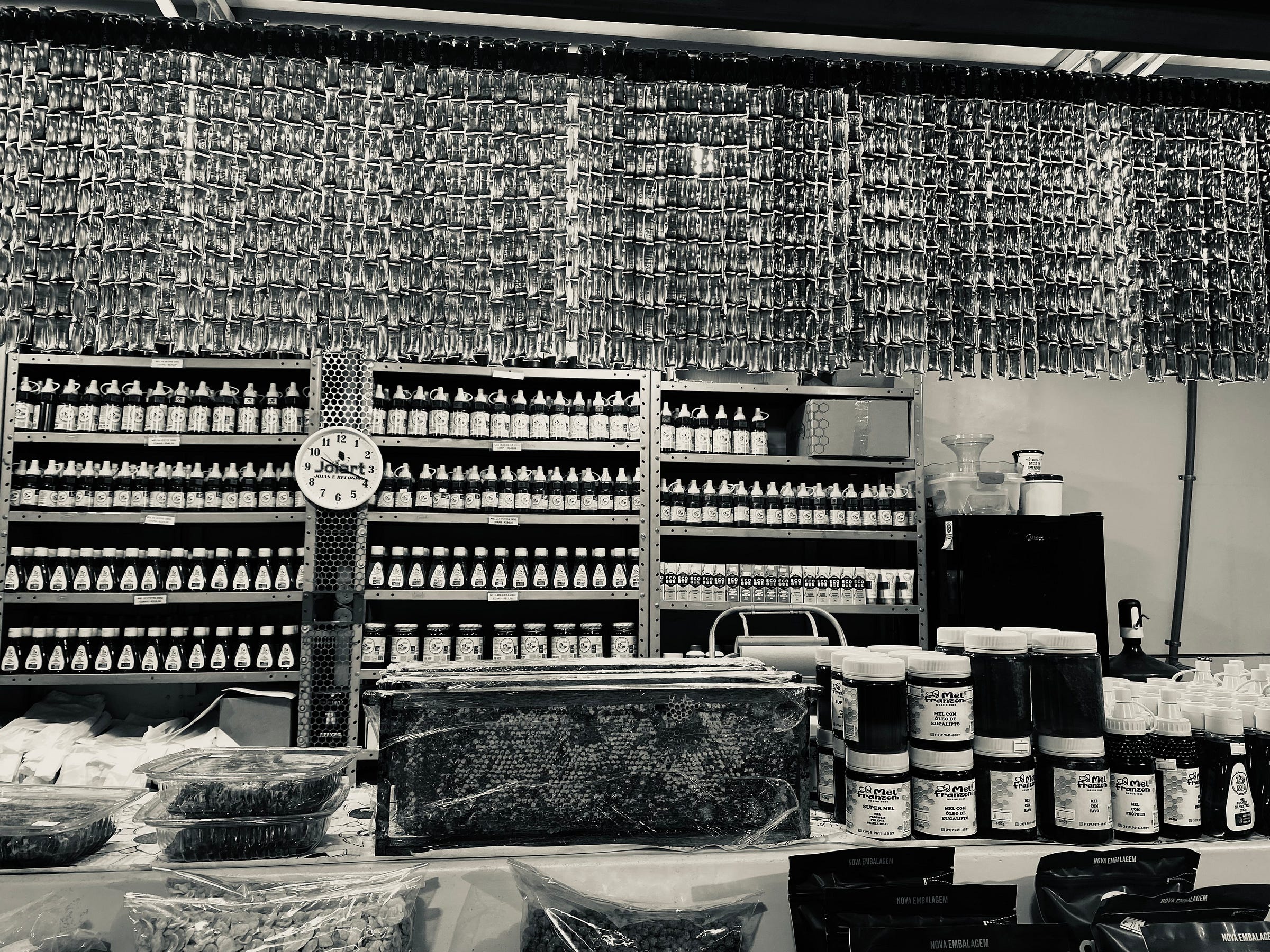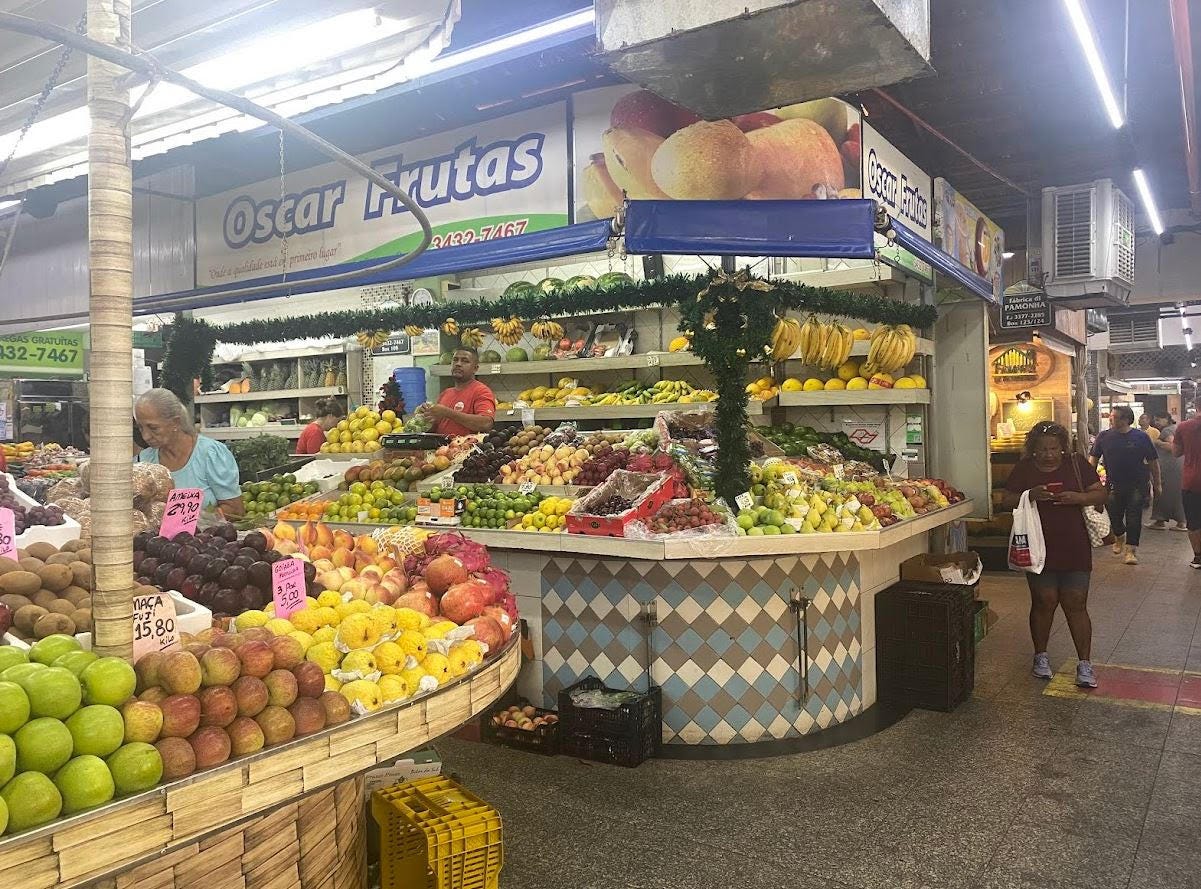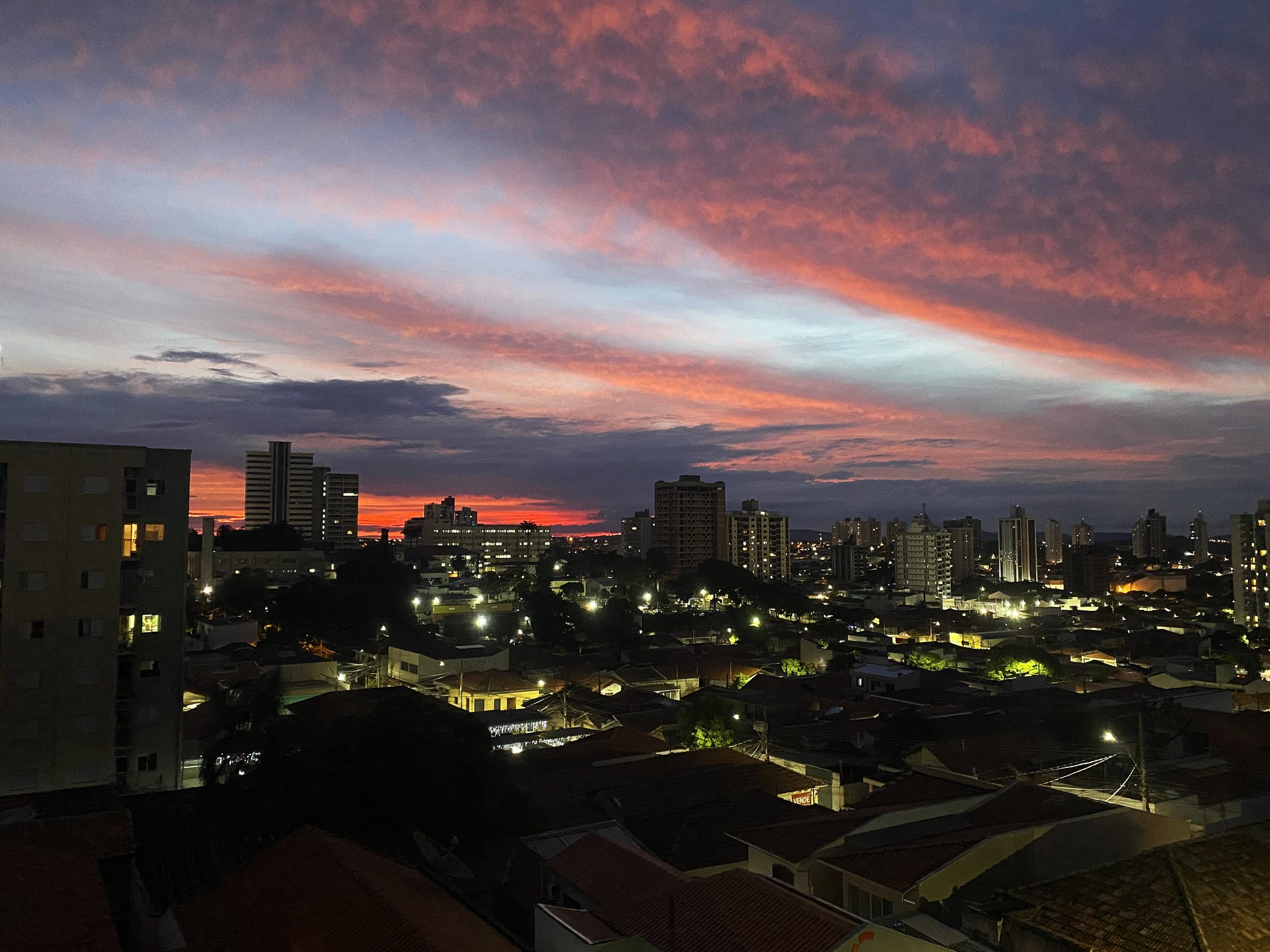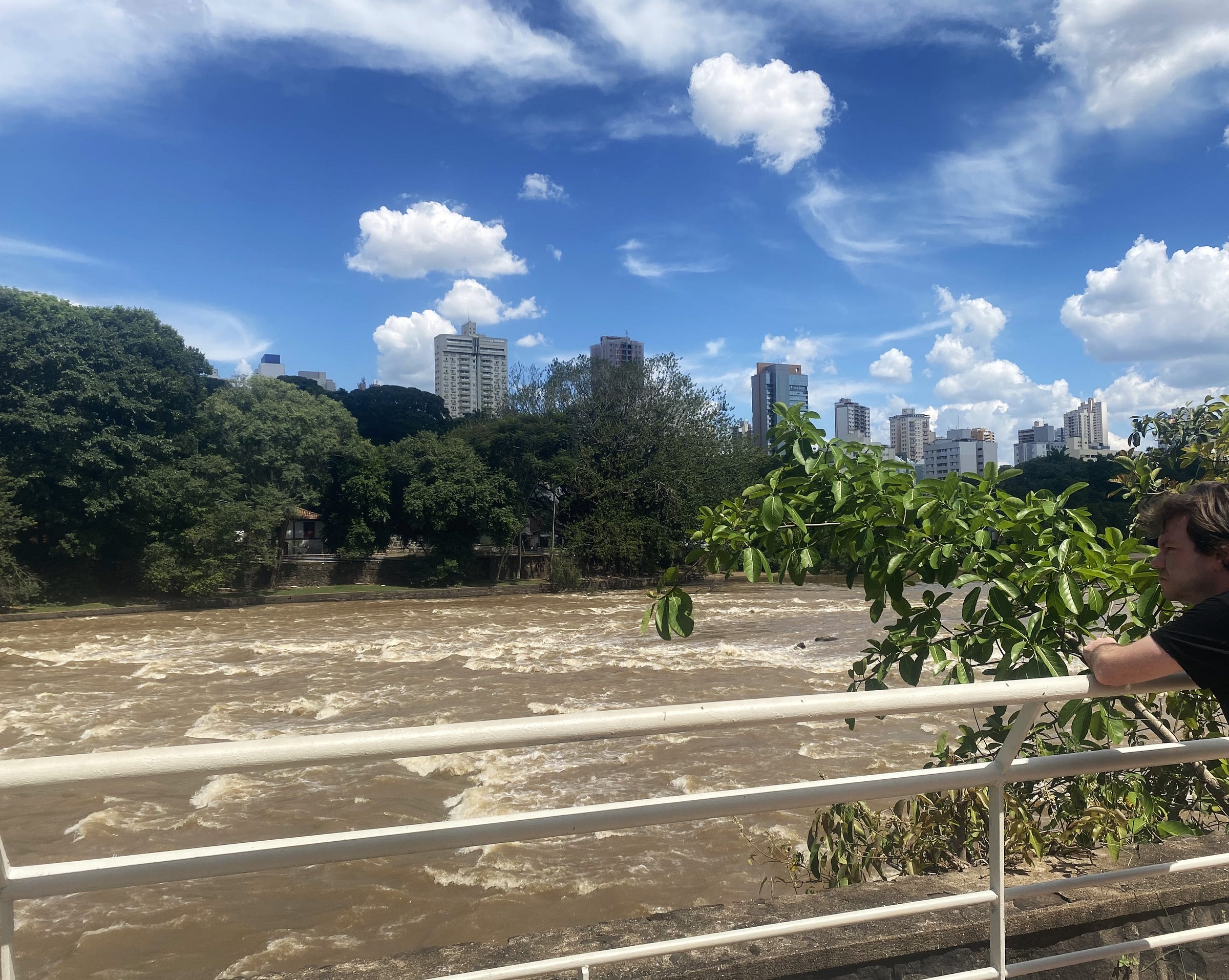Travel Sketch: Scattered Notes From Piracicaba, São Paulo
A continuation of the Brazilian countryside series
Dear Friends,
Dispatches from Bohemian Splendor is a growing newsletter. Becoming a subscriber is an act of supporting the work of a lifelong, dedicated human artist. I aim to make my work as free as possible so that all can participate in the conversations surrounding authenticity, courage and making your life your very own. Please consider subscribing or becoming a paid member. If you read my works, know that I would love to hear from you and am very grateful for any support that you may be able to lend.
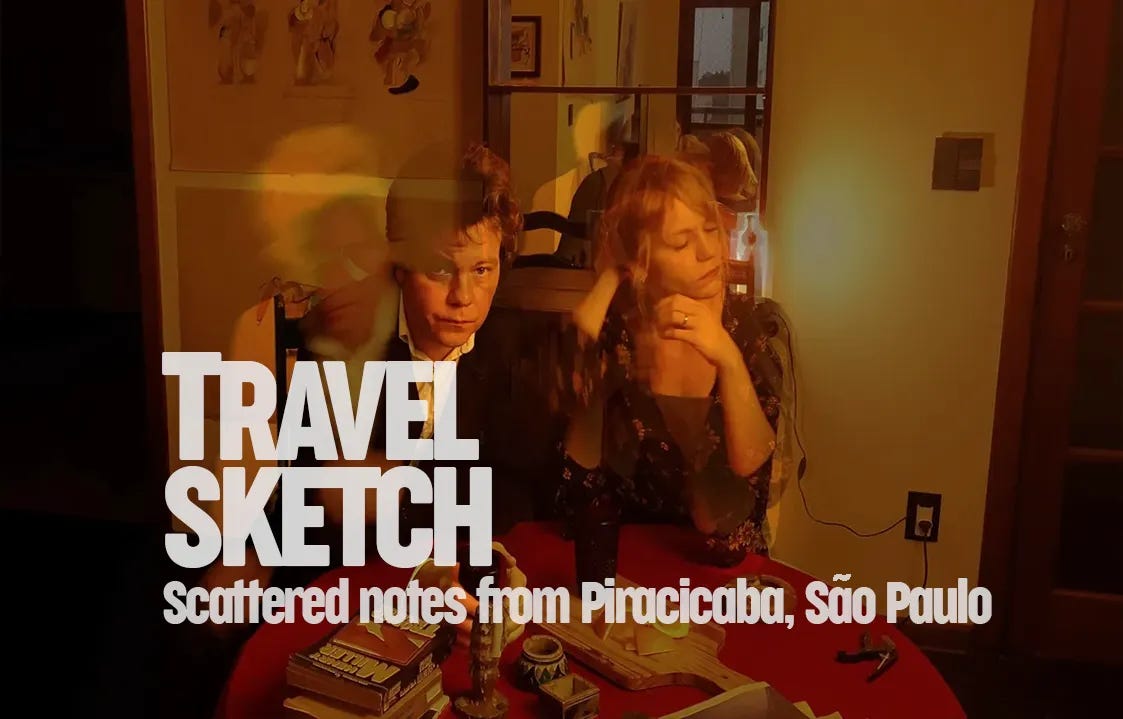
“…We had the rhythm and then we lost it. When the new owner of the home arrived, he looked rather motivated. A man of about fifty, who had a wife and two young boys. He went over each part of the empty house, looking at each power outlet, inspecting the integrity of the walls to see which ones he could knock down, what things he could redo. He must have been excited. I almost felt sorry for him. But I was too busy feeling relieved for Yasmin and myself. It is hard to imagine a new family starting over in that house. How someone could feel so optimistic. When our taxi arrived, we handed him the keys. It felt like the passing of a curse. As we rode away, neither of us looked back. It was on to the open road—yet again.”
—from TRAVEL SKETCH: Three and a Half Years in the Brazilian Countryside
I
It is a Tuesday. Even on a meaningless, unmemorable, unremarkable Tuesday, the city and everything in it, all possible opportunity and activity, permeates through the gridded avenues of Piracicaba. Yes, hope and optimism had just begun to settle in. Standing in our empty apartment, our belongings not yet having arrived, there was a moment of purity—incalculable, unimaginable, immaculate, echoing, purity. Our new apartment was a large place with jade green floors, dark stained wood trim around every corner, and unreachable ceilings—we were happy as clams.
It might be helpful to think of the apartment as having a similar feel as that of a former library. As though its design had been dreamed up by a collector of rare books who smoked from a pipe, wore a sweater vest and doted on houseplants. Too, it had two large patios, with sliding glass doors that overlooked the entirety of the city. Our neighborhood, Cidade Alta (High City), sat atop a large hill, a viewpoint which dwarfed the buildings in the distance that were surely much taller than ours. Yasmin and I stood on the empty patio, eagerly awaiting the moving truck. As it slowly approached up the street, our life inside those very objects returned to us as if they were relics from a century ago. In a slightly silly way, I had almost forgotten about them—as if we were destined to start our lives anew, save the very clothes on our backs. When we were finally moved in, some six hours later, Yasmin was determined to save the cardboard boxes. At the time, I couldn’t really make out as as to why. . .
I had my own office in the back of the apartment with a little window to the city for daydreaming. Yasmin had her office too, with red curtains that turned the whole room to a salmon hue as the Brazilian sun streamed through them like velvet. I could write quite comfortably right then and there on the first day, and eventually could set up a studio so I could paint in the evenings. There was a large white tiled kitchen, and the walls were all lined with crooked, faded and cracked cabinetry. And this was well and good—as cooking a meal is one of my great delights. There would be plenty of dry pantry storage and countertop space— necessities for anyone who wants to keep a kitchen worthy of any respect.
Would there be room enough for a gathering? A small cocktail party for close friends? Of course! I even dreamed up such occasions, as if by habit, but also by urgency. We had to see ourselves as social creatures! All the underground world of poets and singers and dancers and philosophers and users and opportunists would be welcome to stay up late at our place, singing songs and reciting poems as we ate and drank our hearts full. We would all belt out songs and trade love stories and war stories in many various languages. We would glide and sashay on the jade tiles and in every room and we would do this every night if we wanted. We would dash to the bookshelf and read passages at random with great dramatic flourish and flair. We would discuss politics occasionally, and nobody would be upset, nobody would fight and nobody would ever wake up with a hangover.
Piracicaba was sure to contain multitudes. The skyline of those large classical structures said so. The poets and the dreamers—surely, they were here. Surely, we plucked Piracicaba from the map for a reason. After all, there were no road signs directing us to this city. We had not been invited. We had done it all on our own—it was our journey and it was us and us alone that could only be held accountable. Perhaps, if everything went right, we could stay here forever. Bless our hearts! Years of languishing in São Lourenço, not a soul to communicate with, not a bar of music to whistle, not a jig in the world to tap out in joy. Finally, we were in a town where the buildings met the sky at a respectable altitude. Finally, a city that had a little flair; finally, a city where other people actually wanted to live.
Piracicaba felt as though a new day had finally set itself rightly. Done, Yasmin and I were with the rural countryside of Minas Gerais. Finally, we had escaped that black dream, that grandiose mirage. I am saying that when we first arrived in Piracicaba, the river that flowed through the city ran crystalline and majestic. The buildings gargantuan, the townspeople friendly, charming, undefined by their shared surroundings. The city bustled out a serene groove; houses were colored brightly and its grid, especially in those first early evenings, were lined with possibilities. There was a time when the city felt gigantic, intimidating even.
In the city of Piracicaba, restaurants with outdoor patios cover the length of the eponymous river that cuts the city into two equal halves. Waiters summon the passersby with waving menus; the little bow-tied men smile and are prepared to debate, deliberate—anything to get you in! If one of those little bastards mistook you for a day tourist, well, they would hardly let go of you! On our first trip to the city, only to see what this town was all about, we drank caipirinhas in the sun by the flowing river. We spoke of returning, Yasmin and I. This was the place! We believed this city deserved a chance. We were certain it would give us a chance, too.
We spoke of planning our weeks as though we were chemists. Our new life would be deliberate, disciplined, profitable, steady, slow, and easy. Monday through Friday, I would be busy writing and painting. Dinner would be cooked promptly at 7 PM and this is crucial, for in this new city, there are new opportunities and we must seize every one of them! Therefore the week must be met with some form of discipline—no more staying up late into the night for no reason and wasting the dawn curing ourselves from the activities of the night before. No more being holed up and despondent towards our fellow townspeople. We had been through all that isolation once—up with it, we shall not put!
On the first evening night, just having arrived in Piracicaba, on a long exploratory stroll, when the night chills the city into an agreeable temperature, we paced down the parallel avenues by yellow streetlight. It was easy to sense the initial charm of those boutique avenues. Flower shops on every block, numerous cafes, a few dives with their plastic chairs and their open-air façades. The aromas of grilling espetinhos wafted through the streets begging for a dust of farofa. Intentionally, one should walk slowly, and as we did, one by one, the hovering apartment buildings, with their ochre lights, string lamps, and neon television sets—one by one—we watched them darken, one window pane at a time. From 6:30 to 7 PM, the city loses its residents to the night. By 8:00, the city has all but retired and the shops are all but closed. The evening and its promise are already over, and as we stand in the emptied street, there is not a car in sight, nor a shadow nor a rat nor a dog. Only the sound of our footsteps echoing for what felt like forever among the still silence. . .
“It’s only Tuesday, remember…”
“Right, no—of course.”
“We can try again soon.”
Several months in, so far, so good. Yasmin and I have adapted to apartment living much easier than I thought we would have after years of living in our former home. There are moments that I do miss living in that little yellow house. Sometimes, I miss our dog Eva and the fires we would build in the evenings back in the Nhá Chica hamlet of São Lourenço. But none of that is returning—I snap back to reality and when I do, I understand that country dream died and its death was a necessary one. In Piracicaba, there is less unavoidable distraction. If we wanted a distraction, surely, we could find it. But perched up in the apartment high in Cidade Alta, I find it easy to focus. No squalling maritacas, no barking dogs, no goddamn singing from the neighbors.
My writing, in this new, urban environment comes with a new immediacy, a new fury. I have recently composed a new piece, a kind of exploratory essay, and I swear to you I can hardly name its origin. Within it, something has been cracked wide open. Was Piracicaba responsible for this? It makes no difference to me, but when my writing is going well, I am going well. Too, my weekly trips to the Mercado Municipal bring me much joy as of late. I find my cooking is broadening, my exactitude for flavor more precise, all while my love for home cooking has only grown exponentially, year after year. In Piracicaba, my cooking has been at its best for one reason: beloved cebolinha! Oh, what I can do to creamy, herbescent, white beans with a heavy portion of dried green onion flakes. Also, there is tempero gaúcho, a yellow, pungent, salty mixed spice that livens up everything it touches. And in this town, I have finally fallen in love with bright, green cilantro. It must go on everything! Just last evening, I have set up a small painting studio in the living room. After dinner on the patio, Yasmin curls up on the couch to read, we play some light jazz, and I paint to my hearts content.
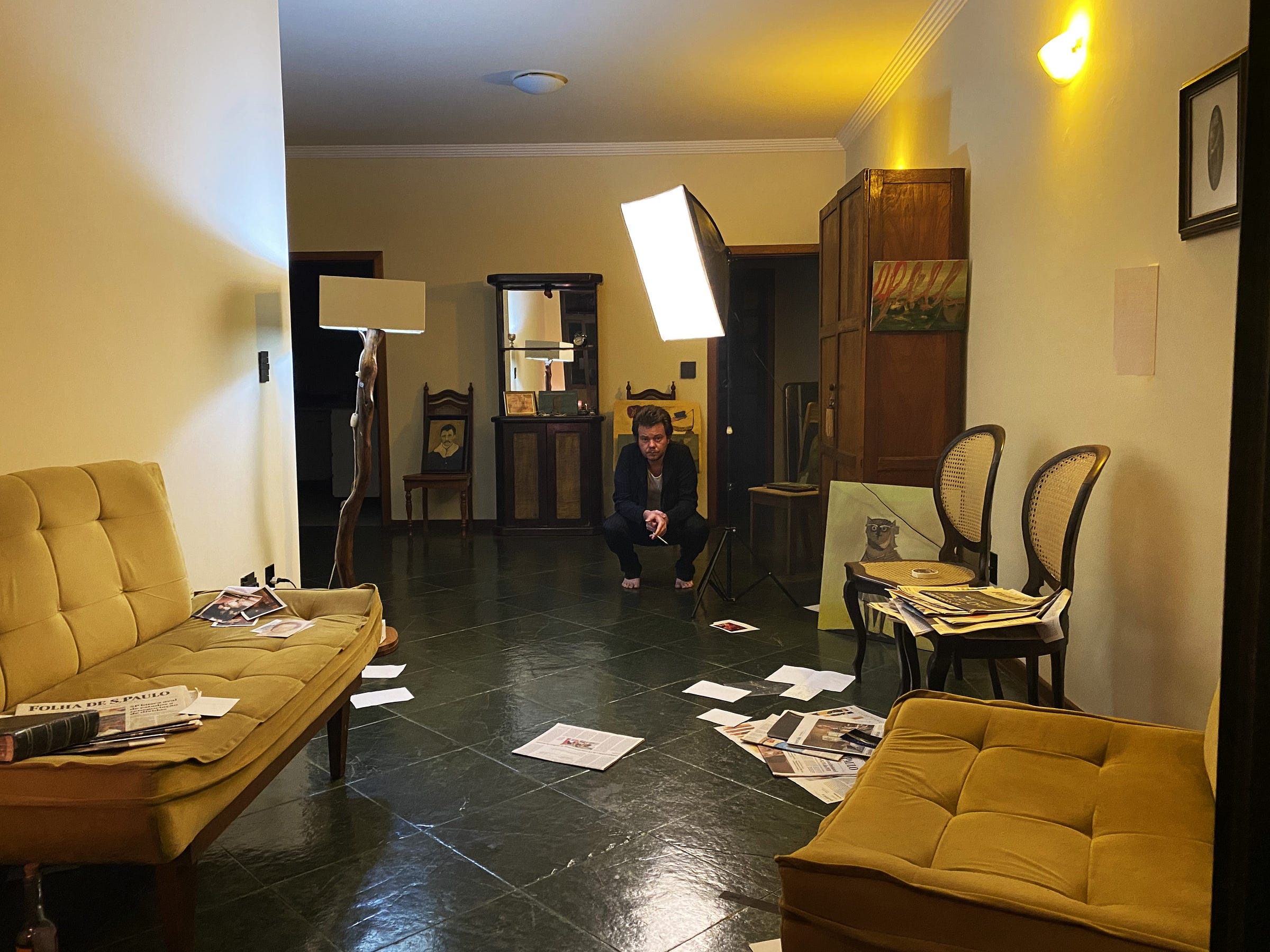
I have been to the Centro Mercado Municipal (farmer’s market) just this morning, and it is my favorite scene in the city. In a letter to a friend not too long ago, I briefly mentioned it with a bit of passing romance:
“…Here in Piracicaba, we have the Mercado Municipal. A decent sized one. Any city of a medium size will likely have a Mercado Municipal here in Brasil. In São Lourenço, it was puny. In Piracicaba, much better. In São Paulo, where there are two, they are practically the size of a wartime airplane hangar for an entire fleet. One of the best parts of my day is to go down to the Centro area and shop for produce. I wish you were here with me! There are several butchers, produce vendors, a few cafés. They sell rice, nuts, olives, cheeses, cachaças, fish, herbs, spices, desserts. On the topic of dessert, Piracicaba is known for its version of Pamonha. Basically, a soft and sweet cake made from corn. Sometimes it is stewed in its own husk like a tamale. This way, it can be made to be sweet or salty, whatever you prefer. Anyways, it is immensely popular in Brasil.”
At a glance, the produce shines in its natural colors; oranges of cenoura, purples of cebolas roxas, greens of maçã verde, coentro, abobrinha, and various ervas all lined up in their neat little rows of prepared portions, or, are bursting out of their bins in the open market air. Pigeons flutter about in the walkways and on the naked scaffolding of the rooftop while teams of folks eat pastéis, pamonha, and salgados that are washed down with crispy guaraná soda. There was nothing better than a Saturday trip to the Mercado Municipal. I would arrive back home, sweat dripping off my brow, with bags of fresh produce, white beans for herby, creamy feijoada, fresh chicken thighs for stews and curries and dozens of small packages of prepared herbs and spices.
On a warm Thursday evening, I have returned with all the ingredients to prepare Yasmin’s most favorite dish as of late: vegetable pie layered with potato puree, onion, eggplant, zucchini, a tangy tomato sauce, and topped with gorgonzola cheese and crispy sautéed mushrooms. While they bake, Yasmin and I sit on the patio and watch the lights flickering in the distance. However quiet and still the city may be, we are immensely grateful for that patio. You could say, on some level, we were even proud of it. Every evening, we would eat dinner, gulp down cocktails and thank the heavens we were no longer in Nhá Chica. Whatever the case, whatever our plights, we were, at the very least, not there any longer. In that way, Piracicaba was a saint.
In the bottom of our apartment there is a small basketball court and a little gym with a treadmill, a bench, and some free weights. I have taken up jogging on that damn machine and have not missed a day in months. Too, I have bought a cheap basketball, that is already starting to warp, but still, I shoot hoops in the sun—some days, I hardly make a basket—but there is a cathartic nature to bouncing that orange ball and lobbing it up to see where it goes. I believe it was sometime around this era in that town that the insomnia crept back into my life. Certainly, a good night of sleep is a luxury, and like all luxury, it is one that is only fully appreciated when it has extracted itself fully from you. With insomnia, I would wake up, drift back off momentarily, then be as awake as a lion. If this lasted more than an hour, and many times it did, I would simply give up, head to the office or patio and in a foggy half-asleep, half-awake state reflect on the quieted streets of this town with a tinge of envy—those streets were hardly ever awake, but at least, they knew how to sleep.
On a recent stroll down to the river, it having recently rained, the water is murky, smelly. Today, Yasmin and I only find down-and-out alcoholics sopping and ragged in those little damp bars. Everything is wet, dewy, and in the gray light, there is the unmistakable, unbearable sense of decay. And, too, the river had flooded and brought with it throngs upon throngs of dead rats lying everywhere one looked. At first, just one—then we notice two, then three, six, twelve—then all at once what appeared was a mass gravesite for an unmentionable number of dead vermin. As though every plate of food from the river had been dragged across their dead bodies, and every cocktail had a dead rat’s tail dipped into it, we vowed to never return to that river—it was no longer crystalline, but black, putrid and forever toxic to us. I don’t believe we were that precious about the rats—which would inevitably be cleared—I think we had already decided a while ago, that river and those dreary bars and drunks were just no damn good. Hard to think now as to why. I suppose when a city loses its intrigue, so does the river that cuts through it.
One can float in a city—turn in and out of it, having no recollection, no direct point of change or evolution to view within the juxtaposing of it to another. It matters little the date on the calendar, the hour hand of the clock, the year, decade or century. Each day is not its very own but rather melts into another. Happiness and despair share this quality within these melting days. So, it would be easy to suggest that I too, felt this way about Piracicaba. Was I in despair? No—not totally. I had Yasmin, Yasmin had me, and I had my writing and my painting, and when looking down upon from above, it was as though I were any man of any town, completely content with my atmosphere and surroundings. However, inside me was an itch—the realization that this was never meant for us was ever-present. Yasmin, being from São Paulo, could not comprehend the end of a city. And every night on the patio, the end of Piracicaba, which turned to the mountainside, black in the night, stared back at us. In Piracicaba, each day was its very own. Each day presented a new challenge of sorts. How do we entertain ourselves with such little inspiration? How quickly could we dig ourselves out of this town? This was not an inquiry which evolved—in fact, I could probably nail it down to a specific day.
I think it must have been Summer when Piracicaba turned irreparably. A Saturday—a sweltering Saturday.






